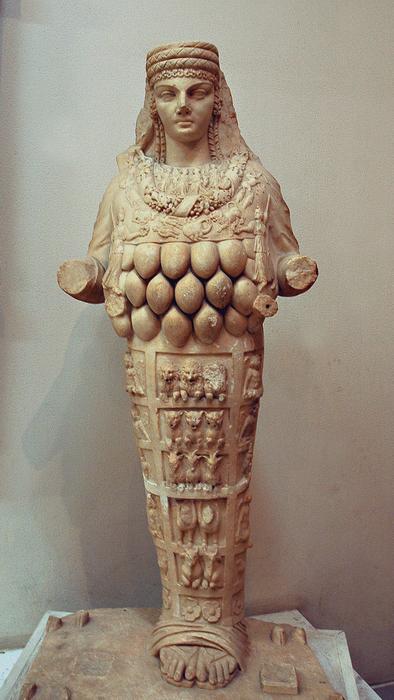 Most Christians know the church isn’t the building. But not as many know the church is a community indwelt by the Holy Spirit. Therefore, how we treat the church is of utmost importance.
Most Christians know the church isn’t the building. But not as many know the church is a community indwelt by the Holy Spirit. Therefore, how we treat the church is of utmost importance.
The mid-1st century A.D. Corinthian church members to whom Paul is writing are divided over preachers. They base their preference on “human wisdom (Sophia)”. Which preacher stands above the others in philosophy and rhetoric? By this time, Paul, having left Corinth for Ephesus, languishes at the bottom of the preference-list, because his speaking is unimpressive and in person he’s weak (2 Corinthians 10:10).
Paul answers his critics . . .
DIVIDING IS UNSPIRITUAL BEHAVIOR
And so, brothers and sisters, I could not speak to you as spiritual people, but rather as people of the flesh, as infants in Christ. I fed you with milk, not solid food, for you were not ready for solid food. Even now you are still not ready, for you are still of the flesh. For as long as there is jealousy and quarreling among you, are you not of the flesh, and behaving according to human inclinations? For when one says, “I belong to Paul,” and another, “I belong to Apollos,” are you not merely human?
The problem, says Paul, doesn’t lie with him, but with them. They have the Spirit, but don’t behave as those who do. They disagree and fault Paul, who preached only gospel-basics, because, like babies, they couldn’t “digest” more. Their divisiveness proves him correct.
Our common sharing in the Holy Spirit (“ , , , all [were] baptized by one Spirit into one body . . . and all were given the one Spirit to drink”–1 Corinthians 12:13) should unite us. Too often, however, we quarrel and divide. Thus we act like children, especially when we dispute over leaders, because . . .
LEADERS ARE SERVANTS
What then is Apollos? What is Paul? Servants through whom you came to believe, as the Lord assigned to each. I planted, Apollos watered, but God gave the growth. So neither the one who plants nor the one who waters is anything, but only God who gives the growth. The one who plants and the one who waters have a common purpose, and each will receive wages according to the labor of each. For we are God’s servants, working together; you are God’s field, God’s building (1 Corinthians 3:5-9).
Corinthians are exalting one preacher over another. But leaders are only servants. Like farmers. One plants, another waters. But growth—that is, faith as the Lord assigns—comes from God. Make much, then, about God, not his servants!
Leaders are also like builders. Builders are servants who, like farmers, “get their hands dirty”. And the building belongs to God, not the servant-builders.
Our culture makes it hard for a leader to think like a servant. People respect you. Your word is usually final in decision-making. Dozens of eyes look to you when you preach. The really successful churches are “mega” and the pastor a celebrity. Leaders easily clothe themselves with self-importance. Here’s what the Spirit leads you to do: take off the “royal robe” and put on the servant’s shirt! The gospel of the crucified Christ is at stake in the leader’s demeanor.
LEADERS MUST BUILD CAREFULLY
According to the grace of God given to me, like a skilled master builder I laid a foundation, and someone else is building on it. Each builder must choose with care how to build on it. For no one can lay any foundation other than the one that has been laid; that foundation is Jesus Christ. Now if anyone builds on the foundation with gold, silver, precious stones, wood, hay, straw— the work of each builder will become visible, for the Day will disclose it, because it will be revealed with fire, and the fire will test what sort of work each has done. If what has been built on the foundation survives, the builder will receive a reward. If the work is burned up, the builder will suffer loss; the builder will be saved, but only as through fire (1 Corinthians 3:10-15).
Paul claims to have founded the Corinthian church “like a skilled master builder.” No boast, because he was enabled by the grace God gave him. Now that he’s left, “someone else is building” on the foundation he laid. Paul warns: choose to build with care, because if your building doesn’t line up with Jesus Christ crucified, God’s Judgment Day fire will burn up what you’ve built.
Corinthians were caught up with “wisdom”–human philosophy about where we’ve come from, how we can know truth, what we should value and how we should think—delivered by polished orators. Now, with the Holy Spirit, Corinthians presumed to possess superior human wisdom and preferred preachers with superior oratorical skill. Relying on those traits was like building with wood, hay and straw.
Preachers today are pressured to build big churches and speak with spellbinding skill. The message “how to be happy” builds bigger churches than “Christ crucified”. The pastor who dresses in the current style and speaks like a talk-show host attracts more listeners than a suit-wearing, arm-waving preacher-man. And if the pastor can find a “great” contemporary worship “band”, he’s got it made. But the church is “the community of the Spirit”. And the Spirit always leads us to the crucified Christ. Leaders who rely on the Spirit build with “gold, silver and precious stones.” What they build will stand in the Judgment. But those who rely on what’s popular are building what will burn.
Divisiveness among members and reliance on inferior “building material” are especially egregious because . . .
THE CHURCH IS GOD’S HOLY TEMPLE
Do you not know that you are God’s temple and that God’s Spirit dwells in you? If anyone destroys God’s temple, God will destroy that person. For God’s temple is holy, and you are that temple (1 Corinthians 3:16,17).
Paul defines “God’s temple” as the people among whom “God’s Spirit” dwells. The church is a community of the Spirit. “God’s temple” means not only that the church belongs to God, but that the church (the gathered people) is indwelt by God (be means of the Holy Spirit). Significantly, for “temple”, he uses not hieron (the temple as a whole), but naos (the inner sanctuary where God dwells).
Destroy God’s temple by divisiveness or by building with teaching contrary to that of the crucified Christ and, Paul warns, “God will destroy [you]”.
The church isn’t only “a community of the Word” where people gather to hear the Bible preached. The church is “a community of the Spirit” where people gather to enter the presence of God the Holy Spirit.
When we enter the sanctuary (“meeting room” demeans what God intends), we should be careful to foster a sense of unity, never divisiveness. And we should actively seek the presence of the Spirit as we worship. For he always leads us to the crucified Christ by whom we are saved from boastful pride and sanctified in humility like our Lord.








Recent Comments